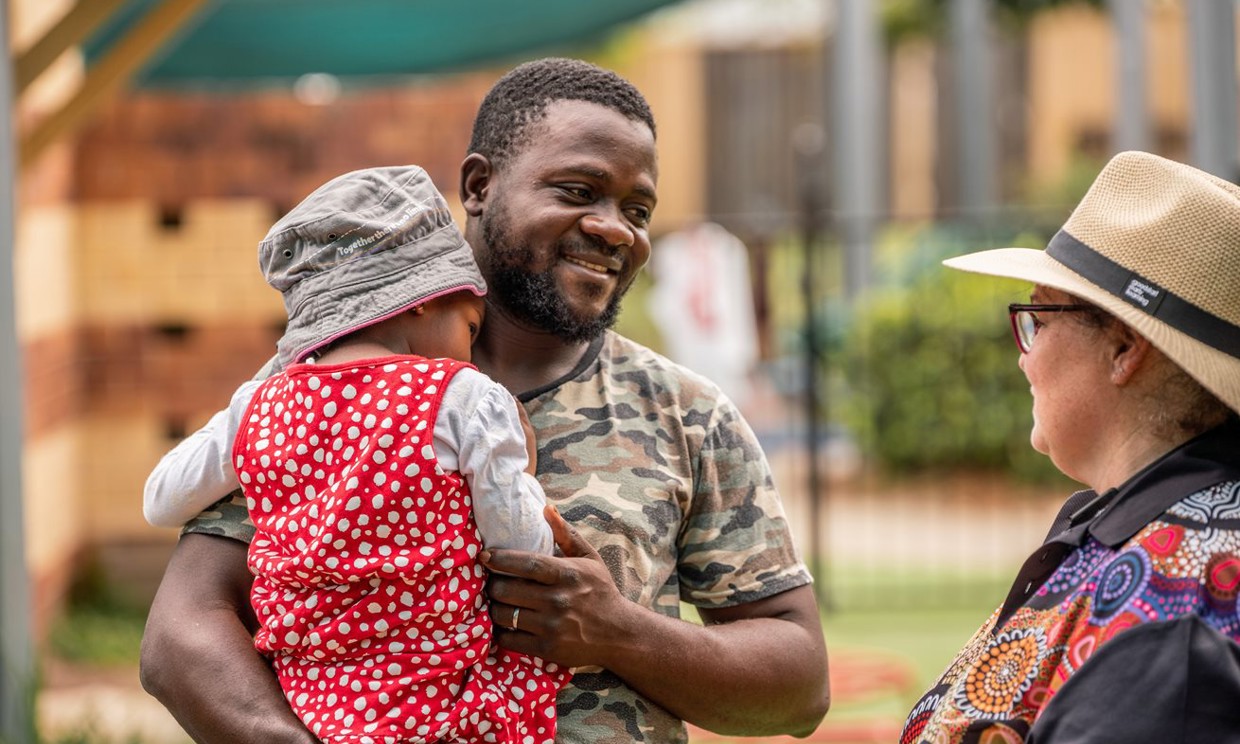Many families and children have experienced devastating impacts as result of the unprecedented 2022 Queensland and NSW floods.
At Goodstart, we’re doing all we can to support our people and families at this time including waiving gap fees for families for the days our centres were unable to open due to the flood event.
As centres are starting to safely welcome back some families, we’re hearing stories of loss, experiences of being in evacuation centres, and some stories of despair.
Have you experienced impacts? Goodstart is here to support you. Here are some helpful tips and advice for families from our Goodstart national social inclusion team.
As always, as a member of our Goodstart family, you are encouraged to talk to your centre director today about your personal situation and how we can help you.
Top tips and advice for families
Fee-relief
Subsidised fees – families may be eligible for ACCS temporary financial hardship. To qualify for this payment, you must:
-
be eligible for Child Care Subsidy
-
have experienced temporary financial hardship due to an event that happened in the last 6 months, including COVID-19, including loss of house and damage, and inability to work due to the flood
-
have a substantially reduced ability to pay child care fees.
Speak to your centre director today about this support option for you.
Outside of subsidised fees, Federal Government has financial assistance for flood victims. More found via Services Australia website here.
Support services
There are a range of local support services, including food relief services, that our centres can connect you to. Talk to your centre director today.kidshelpline.com.au/parents/issues/how-parentline-can-help-you
Talk to a free counsellor
There is a range of external counselling support services for children and families.
One of the free services includes Kids Help Line and their Parentline – connecting you direct to a Parentline counsellor who can provide you support and advice. Access here.
Talking with your child
When children have questions about the recent events, answer them honestly but simply and with reassurance. Ask them what they think is happening and listen to their answers. Don’t discount or laugh at their feelings or responses – they may say they’re afraid, and you should be ready to tell them that fear is alright and it is okay to feel sad. Use simple, positive language that leaves no room for doubt, such as, “I am here to keep you safe.” and “We can rebuild.”
For more tips and advice, about talking to children about natural disasters visit the First Five Years website here.
Limit the amount of news children watch
If you there are no longer any safety threats to you or your family, turn off the TV or radio. You don’t need to hide what’s happening nor do we have to expose them to constant stories about loss.
Monitor your stress
Stresses of a natural disaster can heighten everyone’s daily stresses. Monitor your own stress and use strategies to ‘calm’.
Routine is important and helps us feel safe
Children are reassured by predictable routines.
Take care of yourself
‘Put your oxygen mask on first’ – you are then more able to support the children around you.
Tell children that you are there to keep them safe and you want them to feel safe
Reassure children that you will always protect them. And why certain responses are needed to protect their safety. For example, in our centres, we often share our safety response plan with children and explain why we go into “lock downs”. Older children often support writing a plan.
Watch children for signs of fear and anxiety
Young children may not find words to express fear and stress, instead they might cling or have big behaviours, or have a change in behaviour. Some children become agitated by rain or storms if they have been deeply impacted. For a child who has lost all possessions – trying to find a familiar love toy and book will be valued. Reach out for support, including Kids HelpLine to talk to a Parentline Counsellor for support and advice.
Try to be positive
Children need to understand they have a future, that you are there to help them have that wonderful future. Delight in the beautiful things around them and do exciting and fun things. The outdoors can be a reminder of new growth.
Resources
Great children’s books including the Birdie Books series and Flood – check them out.
- Birdie Books: a flip book on recovering after floods in English and 8 other languages https://www.childrens.health.qld.gov.au/natural-disaster-recovery/
- Flood by Jackie French and Bruce Whatley Flood https://shop.earlychildhoodaustralia.org.au/product/sund441/
Finally, remember, you aren’t alone and Goodstart is here to help you. Reach out to your centre director to discuss assistance.
Where to find emergency assistance and information
- For emergency assistance, contact SES in NSW or QLD on 132 500.
- If your life is at risk, call Triple Zero (000) immediately.
- For the latest weather updates visit the Bureau of Meteorology in Queensland here or in NSW here.
- ABC Emergency contains planning and advice, an incident map and more.
- Roads and bridges may be impacted by flash flooding. You can find more information in Queensland here.
- Other emergency updates can be found at Queensland Fire and Emergency Services or NSW State Emergency Service.
- If you're not sure what to do when there's a flood, here's the best way to plan.


